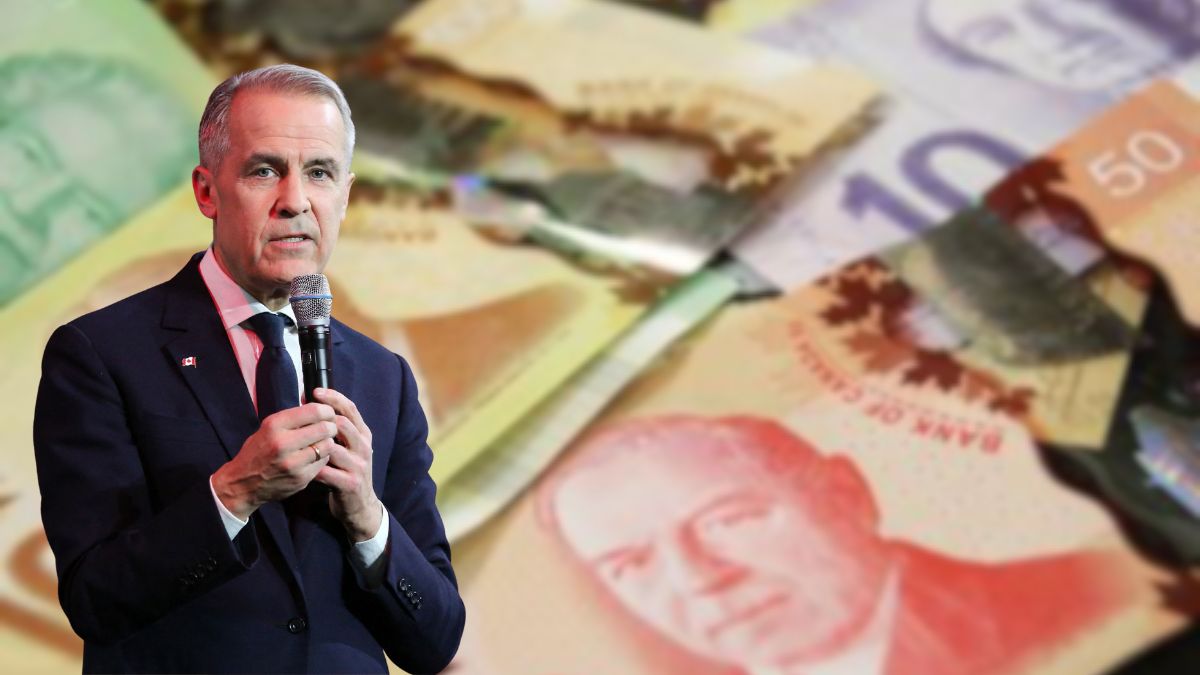As winter approaches, Canadian households are preparing for another round of federal support through the Carbon Tax Rebate, formally known as the Climate Action Incentive Payment (CAIP). Rising energy costs have put increased pressure on family budgets, particularly when it comes to home heating and transportation. The Winter 2025 rebate is designed to ease this burden, ensuring that the revenue collected from federal carbon pricing is returned directly to eligible residents.
With payments arriving in February 2025, this rebate provides timely relief during one of the costliest seasons of the year. Here’s a complete breakdown of what Canadians can expect, who qualifies, and how the process works.
What Is the Carbon Tax Rebate?
The Carbon Tax Rebate, officially delivered through the CAIP program, is a quarterly payment issued by the Canada Revenue Agency (CRA). It returns money collected from the federal carbon tax on fuels like gasoline, natural gas, propane, and heating oil.
The aim is simple: offset the rising cost of living caused by carbon pricing while maintaining incentives for households to conserve energy. Unlike traditional benefit programs, this rebate is non-taxable and automatically distributed to eligible households—no separate application required.
Who Qualifies for the Winter 2025 Rebate?
Eligibility depends on where you live, your residency status, and your tax filings:
- Provinces covered: Ontario, Manitoba, Saskatchewan, and Alberta (federal carbon tax applies here).
- Residency: Must reside in one of the eligible provinces as of December 31, 2024.
- Tax filing: Must file a 2024 federal income tax return, even with little or no income.
- Household structure: Payments are calculated based on the number of adults and children in the family.
- Exclusions: Provinces with their own carbon-pricing programs, such as British Columbia, Quebec, and Nova Scotia, do not receive this federal rebate.
How Much Will You Receive in Winter 2025?
The rebate amount varies by family size and province. Updated annually, these figures account for inflation and regional household data.
Estimated Winter 2025 Payment Amounts
| Household Type | Ontario / Manitoba / Saskatchewan / Alberta |
|---|---|
| Single Adult | $195 |
| Two Adults | $390 |
| Adult + 1 Child | $293 |
| Adult + 2 Children | $391 |
| Two Adults + 1 Child | $488 |
| Two Adults + 2 Children | $585 |
| Two Adults + 3 Children | $682 |
| Two Adults + 4 Children | $779 |
These amounts represent Winter 2025 payments only. Additional quarterly deposits will follow in spring, summer, and fall, bringing the total annual support to significantly higher levels.
Winter 2025 Payment Schedule
The CRA issues the rebate four times per year. For Winter 2025, the first payment arrives at the end of February.
| Payment Period | Deposit Date | Method |
|---|---|---|
| Winter 2025 | February 28, 2025 | Direct Deposit / Cheque |
| Spring 2025 | May 1, 2025 | Direct Deposit / Cheque |
| Summer 2025 | August 1, 2025 | Direct Deposit / Cheque |
| Fall 2025 | November 30, 2025 | Direct Deposit / Cheque |
- Direct Deposit: Fastest option, arriving on the scheduled date.
- Cheques: Mailed payments may take several business days to reach households.
How to Receive the Rebate
The process is straightforward if eligibility criteria are met:
- File your 2024 tax return on time—the CRA uses this to calculate your rebate.
- Update your CRA My Account to ensure your direct deposit and address details are accurate.
- Automatic payments: If you qualify, no separate application is needed.
- Track payments: Use CRA My Account to check deposit dates and confirm payment amounts.
What Does the Rebate Cover?
While not earmarked for specific spending, the rebate is intended to offset carbon-related expenses, including:
- Home heating fuels (natural gas, propane, furnace oil).
- Gasoline and diesel for vehicles.
- Electricity produced using fossil fuels.
- General household energy costs.
The payment arrives at the height of winter when heating bills are at their peak, providing much-needed relief for families and individuals.
Recent Updates for Winter 2025
Several key changes will apply to the Winter 2025 rebate:
- Increased amounts: Payments have been adjusted upward to account for inflation and higher energy costs.
- Family-focused adjustments: Extra support directed at households with dependent children under 18.
- Faster processing: CRA is prioritizing direct deposit for quicker, safer delivery.
- Quarterly schedule confirmed: Winter’s payment marks the first of four installments in 2025.
Tips to Maximize Your Rebate
Even though the program is automatic, households can take simple steps to avoid delays or missed payments:
- File early: Submitting taxes promptly ensures no interruptions.
- Keep contact details updated: Incorrect addresses or outdated banking info can delay payments.
- Budget wisely: Plan to use the rebate for heating, fuel, or transportation costs.
- Check My CRA Account regularly: Monitor your payment status and ensure deposits are processed correctly.
Why the Carbon Tax Rebate Matters
With inflation still impacting groceries, utilities, and transportation, the Carbon Tax Rebate provides a critical safety net. For families juggling tight budgets, it represents not just a financial cushion but a sign of federal recognition of the rising costs of daily life.
By ensuring transparency, automatic eligibility, and predictable quarterly deposits, the program gives Canadians confidence that support will continue throughout 2025.
FAQs
Q1. Can I receive the Carbon Tax Rebate if I live in a province with its own carbon pricing program?
No. Provinces like British Columbia, Quebec, and Nova Scotia administer their own systems and are excluded from the federal rebate.
Q2. Do I need to apply for the Winter 2025 rebate?
No. The rebate is automatic as long as you file your 2024 federal tax return.
Q3. How is the payment amount calculated?
It’s based on household size, income tax return details, and province of residence.
Q4. When will the Winter 2025 payment arrive?
On February 28, 2025, via direct deposit or cheque.
Q5. Is the rebate taxable?
No. The Carbon Tax Rebate is non-taxable and does not need to be declared as income.







